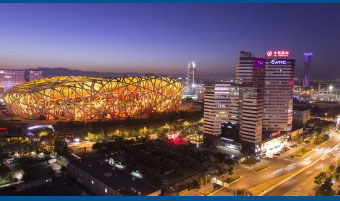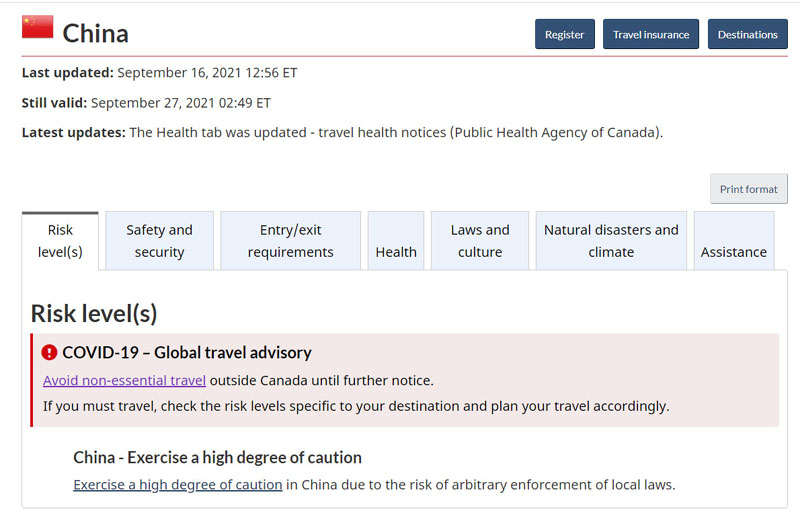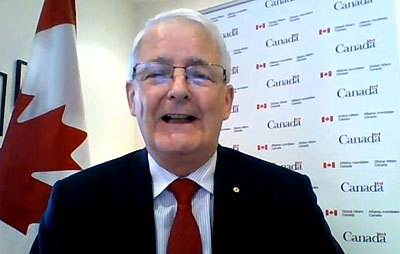
Sunday September 26, 2021 | NATIONAL
by Mary P Brooke, Editor | Island Social Trends
A wave of relief across Canada could be felt on Friday night and throughout this weekend as the release and arrival of “the two Michaels” was learned of, watched on national TV, discussed and debated in numerous political news shows, and absorbed into the Canadian psyche as the end of one chapter and the beginning of another.
Prime Minister Justin Trudeau announced the release of Michael Kovrig and Michael Spavor on Friday evening September 24 to media at 9:45 pm local time in Ottawa (6:45 pm Pacific Time). He must have travelled almost right away to Calgary, as he was on hand and ready to greet the two Canadians on the tarmac of the Calgary International Airport pre-dawn Saturday morning.
Kovrig and Spavor had been arbitrarily detained in China for 1,019 days in retaliation for the detention of Huawei executive Meng Wanzhou in Vancouver (on December 1, 2018) at the request of the United States as part of US-Canada extradition agreements.
Throughout the extended episode, Canada chose to tread lightly in public as to demanding that “the two Michaels” be released. But evidently behind the scenes there was ongoing engagement at the diplomatic level, likely the entire time.
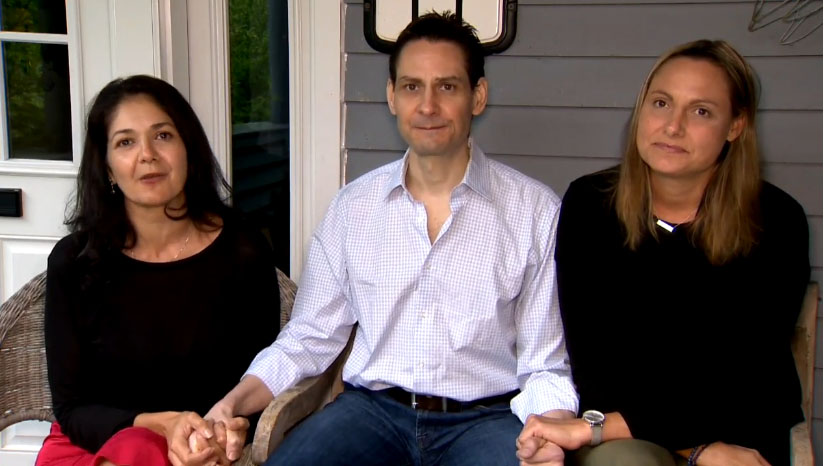
When Wanzhou was ‘free to go’ as declared by the US justice system (and in turn BC therefore dropping its detention of the Huawei executive) on Friday September 24, the travel response was prompt. Wanzhou went almost immediately to a plane waiting to take her from Vancouver back to China, and within two hours Kovrig and Spavor were on a Canadian air defense jet bringing them to Canada.
Wanzhou literally got the red carpet treatment upon her arrival, accepting bouquets of flowers and making a speech as soon as she de-planed on Chinese soil.
Kovrig and Spavor were greeted on the tarmac in Calgary by Prime Minister Justin Trudeau and Foreign Affairs Minister Marc Garneau in the dark of wee-hours of the night, along with what appeared to be a group of consular officials and government staff.
Political impacts:
The optics of the release of the two Michaels so quickly after the release of Meng Wanzhou is that the Chinese have ‘admitted’ that the detention of the two Michaels was directly associated with the detention of Wanzhou by Canada on behalf of the USA. The success in achieving that timing and presentation is being largely attributed to the work of the US President Joe Biden administration.
The world’s two superpowers — USA and China — are in the lead as the world moves forward. In recent years Australia, Japan and Canada have been caught in the jaws of the Chinese government’s choice to detain citizens of countries with which there are political disagreements.
Stark contrast:
While in detention, Wanzhou was under house arrest at one of her two mansions in Vancouver; she wore an ankle bracelet and was allowed to leave her home to dine at restaurants and be in the community, and was allowed contact with her family.
By contrast, Kovrig and Spavor were held in cells the entire time without being allowed outdoors, they shared their confined space with other inmates, and had food served through the door of their confined area; they were allowed consular visits but those were not on a regular basis (particularly during the first waves of the pandemic) and were brief.
Minister Garneau in news interviews this weekend on CTV, CBC and Global referred to the experience of the two Michaels as “manufactured arbitrary detention” and explicitly stated that that “there was no path to a relation with China so long as the two Michaels were detained”.
“Now 65 countries have been very loudly supportive that you cannot arbitrarily detain citizens of a country because you have a disagreement with a country,” said Garneau today.
Moving forward in a world that includes China:
“We will continue to challenge challenge China as we move forward, but our eyes are wide open,” Garneau said firmly today.
Today Garneau outlined Canada’s approach to going forward in relations with China, using a 4-C’s list:
- Coexist with China. “We are on the same planet”, said Garneau. China is a superpower that will only grow stronger over the years.
- Compete with them. China is Canada’s second-largest trading partner, including in significant economic sectors like agrifood from the prairies and manufactured goods from southern Ontario. The USA is Canada’s biggest trading partner and it will make sense for Canada to maintain good three-way relations in that regard.
- Cooperate. Two large issues impact the entire world — climate change (with China being the largest producer of greenhouse gases, and the COP26 coming up Oct 31 to Nov 12 with the goal of uniting the world to tackle climate change) and pandemics (“it’s the way the world is built” that new viruses emerge mostly from China). Both realms of geo-political concern will require cooperative involvement by China.
- Challenge. Garneau says Canada will continue to challenge China over arbitrary detention, as well as things like treatment of the Uyghurs in China, treatment of the people of Hong Kong, and treatment of the Tibetans.
A big moment:
Garneau also firmly but touchingly said that he will remember his meeting of the two Michaels as they arrived back in Canada, for the rest of his life.
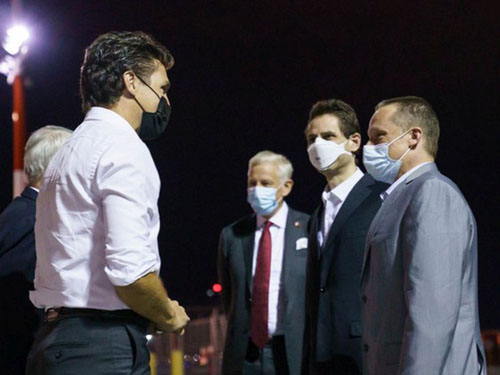
TV coverage showed big hugs from Trudeau with each Kovrig and Spavor. Canada’s prime minister kept it real. No fanfare, and wearing just an open white shirt, approaching the returning Canadians with as little formality as possible. Apparently there was coffee set up indoors, and there was an opportunity to chat there at the airport in Calgary.
Then Kovrig boarded another plane (a chartered Canadian government aircraft) along with Canadian Ambassador to China Dominic Barton to take the last leg of his journey to Toronto to be greeted by his family on the tarmac at the Toronto Pearson International Airport in Mississauga. In a brief moment addressing media through a chain link fence, Kovrig said he felt “fantastic”.
Both returning men seemed to be in good spirits and physically well enough, but they were both a bit thinned out (compared to photos of them from a few years ago). They will not likely have yet been vaccinated against COVID-19 unless they received such immunization while in China; the COVID pandemic began officially in March 2020 and COVID vaccines were only first available around the end of 2020. Kovrig and Spavor both wore masks when in close-up contact with people at the airports this weekend.
Telecommunications security:
The Chinese company Huawei is aiming to bring their 5G telecommunications system into western society. Australia, the USA and other countries have already banned the use of Huawei 5G infrastructure.
Canada will now have the opportunity to make a similar decision, Garneau said today regarding “ensuring the security of our telecommunications system in our country”. He stated: “In due course we will make that decision,” said Garneau.
“We have been very clear on unacceptable behaviour of arbitrary detention of the two Michaels.” As for security of Canada’s 5G telecommunications system: “When we’re ready to make that decision we will make it.”
The 5G technologies and systems allow for highly advanced wireless capabilities. The Communications Research Centre (CRC), the Government of Canada’s primary advanced telecommunications research facility, is focused on bringing 5G to Canada so that Canadians can benefit from advanced telecommunications systems, technologies and applications.
Big players in delivering wireless in Canada are Bell, Rogers and TELUS.
Winter 2022 Olympics:
The 2022 Winter Olympic Games are scheduled for February 4 to 20 based in the Chinese capital of Beijing.
Garneau says it’s up to the International Olympic Committee as to location and venue for the games, and that ‘s up to Canadian Olympic Committee “to make a decision as to participation of the athletes”.
“We’ve been very clear on the areas where we’ve accused China of arbitrary detention and human rights records,” said Garneau, and restated that decisions about Canada participating in the Beijing 2022 games is a decision to be made by the Canadian Olympic Committee “because it is responsible for Canada’s athletes”.
Travel advisories regarding China:
As for Canadians who may be considering any travel to China, on vacation or for business, Garneau fully recommends checking the travel advisories as published by Global Affairs Canada. Ultimately, it is a decision made by citizens, he said today.
“We recommend that they check travel advisory and it’s very explicit, but Canadians make their own decisions. They’re all aware of what happened to the two Michaels,” said Canada’s foreign affairs minister today.
Presently, the Global Affairs Canada travel advisories web page clearly states right at the top that non-essential travel outside of Canada should be avoided until further notice (including cruise ship travel). This could largely be due to the ongoing COVID-19 pandemic, but also other factors.
Avoiding non-essential travel is published as: “There are specific safety and security concerns that could put you at risk. You should reconsider your need to travel to the country, territory or region. If you are already in the country, territory or region, you should reconsider whether or not you really need to be there. If not, you should consider leaving while it is still safe to do so. It is up to you to decide what “non-essential travel” means, based on family or business requirements, knowledge of or familiarity with a country, territory or region, and other factors.”
For travel to China, the Global Affairs Canada statement about avoiding non-essential travel was last updated on September 16, 2021 12:56 ET (regarding health reasons) and is still shown as still current at September 26, 2021. It is also stated: “Exercise a high degree of caution in China due to the risk of arbitrary enforcement of local laws.”




